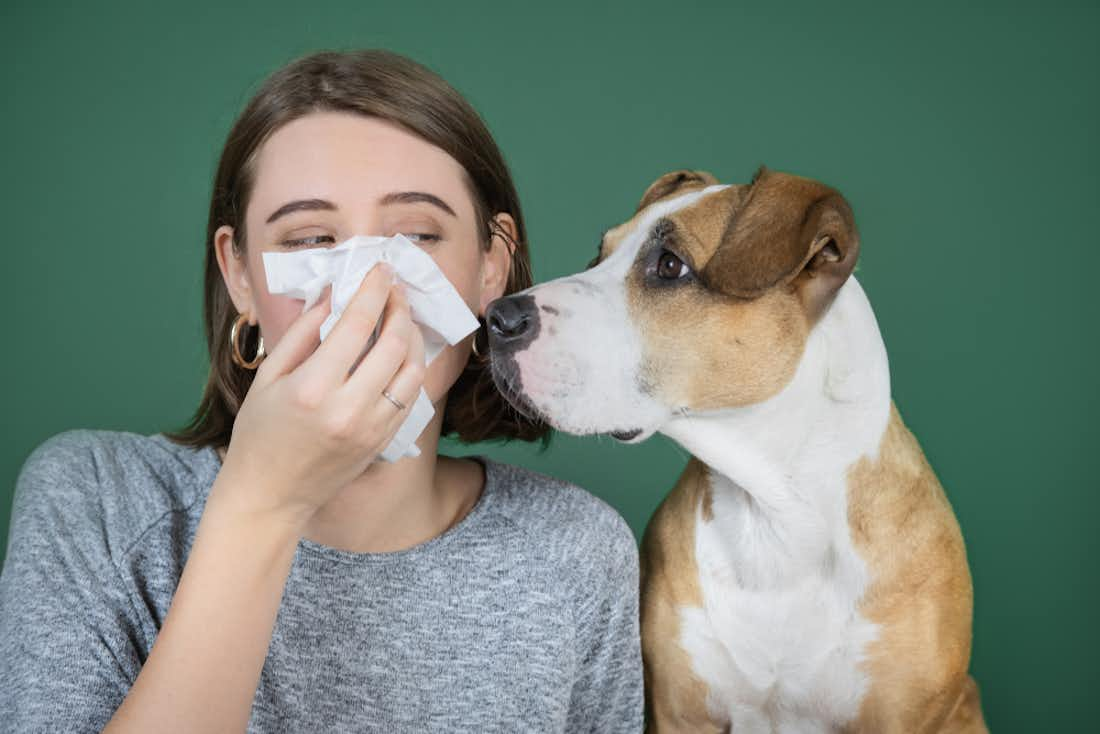Dec 1, 2021
3 Alternatives to Allergy Shots
4 minute read
There are several different routes you can take to manage allergies, but one of the most frequently mentioned treatments is subcutaneous immunotherapy – otherwise known as allergy shots.
Shots are often recommended to allergy sufferers who deal with symptoms that are chronic, severe, and unaffected by other treatments.
Over time, consistent subcutaneous immunotherapy treatments have been found to have a significant impact on allergy symptoms. However, as effective as allergy shots can be, there are some potential drawbacks to consider before jumping in with this treatment.
In this post, we’ll be exploring some of the best alternatives for allergy shots, as well as unpacking the reasons why you might want to consider a different treatment for your allergies instead of subcutaneous immunotherapy.
Allergy Shots Explained
Subcutaneous immunotherapy is an allergy treatment method that works by slowly lowering your immune system’s sensitivity to the triggers of your allergies.
Since an oversensitive immune system causes an allergic reaction, immunotherapy treatments can effectively reduce symptoms in the long run.
When you get immunotherapy treatments, you’re getting exposed to trace amounts of the allergens that trigger your symptoms. As your dosage increases, your immune system’s reaction to these allergens should slowly decrease, bringing you the relief that you need from your symptoms.
While sublingual immunotherapy treatments (allergy drops) can be taken at home without an allergist’s supervision, you’ll need to be in an allergist’s office when you receive allergy shots. Doses of subcutaneous immunotherapy treatments are typically given weekly or biweekly at first, then less frequently as time passes.
The Drawbacks of Allergy Shots
Even though subcutaneous immunotherapy can be very effective in treating allergies, it’s not without its downsides. Below are some important factors to take into consideration before trying subcutaneous immunotherapy:
- The risk of side effects is higher. Because immunotherapy treatments expose your body to small amounts of allergens, there’s always a possibility that you might experience a reaction.
However, the risk of a more severe allergic reaction is much higher with subcutaneous immunotherapy than with sublingual immunotherapy. Because of this higher risk, you need to be at your allergist’s office for treatment, as well as afterward.
Treatment can be inconvenient and requires travel. Because you’ll need to commute for all of your subcutaneous immunotherapy treatments, your travel expenses can quickly start adding up. This is especially true during the buildup phase of treatment, which will be the most frequent of your appointments.
If you’re scared of needles, treatment can be miserable. While allergy shots can be very effective, getting each immunotherapy dose can be a terrifying experience for some people. If you have a phobia of needles, getting a weekly or biweekly shot may be completely out of the question for you.
What Treatment Should I Try Instead?
If the potential drawbacks associated with allergy shots are making you want to seek out something different, you’re in luck – there are several other routes you can take to get relief from your allergy symptoms. Below are a few of our favorite alternatives to allergy shots.
1. Antihistamines
Antihistamines are allergy relief medications that target histamines, which play the biggest role in an allergic reaction. Your immune system releases histamines as part of its inflammatory response, a response that can cause symptoms like itching, sneezing, runny noses, and more – all the symptoms associated with an allergic reaction.
Some antihistamines are available over-the-counter, but you’ll need a prescription to get a supply of others. Prescription antihistamines are typically only recommended for allergy sufferers with symptoms that aren’t responding to treatment with over-the-counter medication.
When taking antihistamines, it’s always important to be mindful of one side effect that many of them share – they can make you drowsy. There are plenty of non-drowsy antihistamines to choose from, but several of the most popular ones – Benadryl, for example – are best to only take at night.
2. Sublingual Immunotherapy
Sublingual immunotherapy treatments, also known as allergy drops, are one of our favorite alternatives to getting shots for your allergies.
As an immunotherapy treatment, drops can have the same impact that shots would on your allergy symptoms – without the needles. In addition, shots are more convenient and more accessible, and they come with a lower risk of side effects.
At Cleared, we typically recommend sublingual immunotherapy treatments to patients whose allergy symptoms have a significant negative impact on their lives. If you’ve tried antihistamines and other medications and still can’t get relief from your symptoms, immunotherapy may be the best choice for you.
We offer immunotherapy treatments for sufferers of allergies to ragweed, grass pollen, and dust mites, three of the most common airborne allergens. To learn more about treatment, check out our immunotherapy options and explore everything we have to offer.
Conclusion
Allergy shots are often regarded as one of the best treatments for allergies out there – and with good reason. However, there are many alternatives to choose from, including sublingual immunotherapy, which we offer here at Cleared.
To learn more about treatment, set up an online consultation with one of our allergists, who can fill you in on everything you need to know.
Reviewed by Dr. Payel Gupta
Sources:
3 ways to manage allergies | Harvard Health
Allergy Immunotherapy | ACAAI Patient
Overview of the Immune System | NIH: National Institute of Allergy and Infectious Diseases



